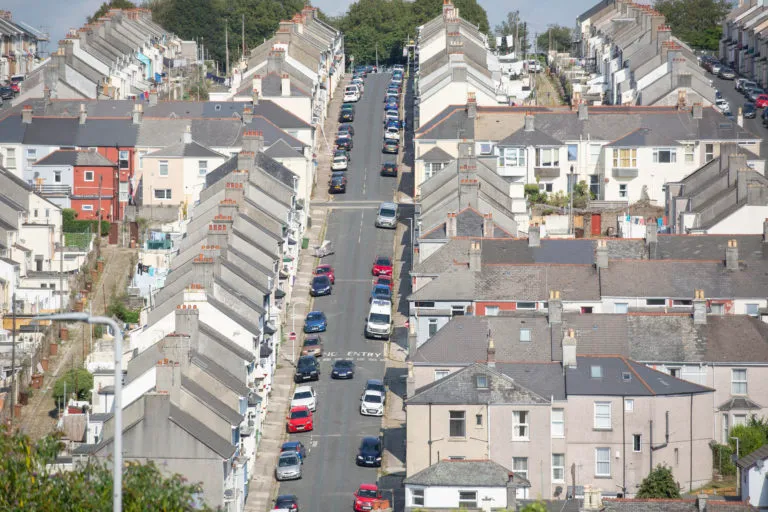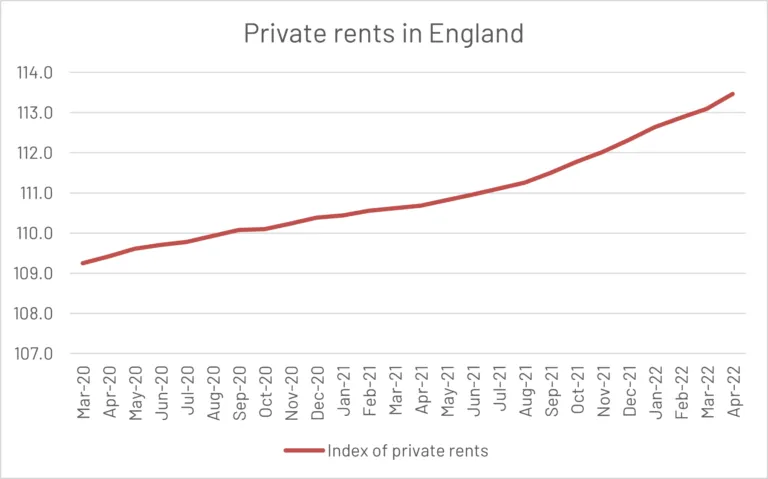Cost of living boost is welcome – but housing benefit must be made fit for purpose
Published: by Charlie Berry

Last week, the Chancellor Rishi Sunak announced measures to help households cope with the spiralling cost of bills and food. This included a £650 boost for those on Universal Credit and some other benefits, a welcome measure which will be a relief to millions.
We welcome the fact that this support and other measures, like a £150 additional boost for those receiving disability benefits, are targeted at those struggling the most to cope with the cost of essentials.
Good news for benefit-capped families
It’s good news that these payments will be exempt from the benefit cap – meaning that the 123,000 households affected by the cap, who normally have their benefits limited, will finally get additional help. 85% of these households have children, and more than six in 10 are headed by lone parents, who struggle to meet the requirement to escape the cap by working more hours, as they single-handedly care for their families.
The cap takes no account of factors like the number of children in a family or the size of home they need to live in. It has been frozen at the same level since 2016 despite rising prices and rents. It forces families to make terrible choices between keeping up with the rent and paying for essentials. The benefit cap also makes it very difficult for former rough sleepers and survivors of domestic abuse to afford a new, settled home.
Exempting the additional support is a welcome recognition that the cap is unfeasibly low and leaves people with too little to live on. This shows that it’s time to scrap the benefit cap – otherwise, when the additional support runs out, capped households will face a cut to their income next year while other households see their benefits rise in line with inflation.
Renters falling through the cracks
One group who may not feel the full benefit of the measures are renters. The chancellor announced a £400 rebate on energy bills. But for the many renters whose bills are included in their rent, they will be at the mercy of private landlords as to whether the rebate is passed on.
Another group of renters at risk of losing out are households who receive the old style of housing benefit, which is now being phased out in favour of Universal Credit. Private and social renters who receive ‘legacy’ housing benefit but do not claim another eligible benefit will not get the £650 payment. Instead, the government has expanded the discretionary Household Support Fund and will ask councils to identify and support households in this position. We plan to work with officials to make sure people claiming legacy housing benefit don’t miss out.
Rents soar as housing benefit is frozen
Most concerningly, for many of the 1.8 million private renters who receive housing benefit the additional boost to their income may simply end up plugging shortfalls caused by a freeze on the amount they can claim. Unlike other benefits which get uprated in line with inflation, the Local Housing Allowance (LHA) which determines the amount of housing benefit private renters receive has been frozen since March 2020, while rents have seen record increases in many parts of the country. As the graph below indicates, average rents in England are now four percentage points higher than they were when LHA rates were set.

Graph showing data from the ONS Index of Private Housing Rental Prices, April 2022. In the ONS index, 100 = average rents in January 2015. LHA rates were set in March 2020 based on the 30th percentile of local rents.
As we showed in our blog back in February, the result is that in 91% of areas in England LHA falls below modest rents for two and three bedroom homes. The average shortfall for two-bedroom homes is over £45 a month – £548 a year. But in some areas, rents at the lower end of the housing market which is supposed to be covered by housing benefit have risen even faster.
- In North, Cornwall where demand for holiday lets is pushing local private renters out of their homes, the shortfall between housing benefit and rent for a modest two-bedroom home is £658 a year
- In Peterborough, the shortfall for a three-bedroom home is about the same, at just under £658 a year
Many ordinary families in areas like these may find the £650 boost to their benefits is spent plugging the gaps between rent and housing benefit.
Restore the safety net against homelessness
The measures announced last week will help millions with the immediate pressures of spiralling costs. But while housing benefit is allowed to slip further and further away from the real cost of rents, private renters will still face stark choices to keep up with the cost of their home.
To make sure that families are prevented from becoming homeless, we urgently need housing benefit to be made fit for purpose and linked to the real cost of renting in 2022.